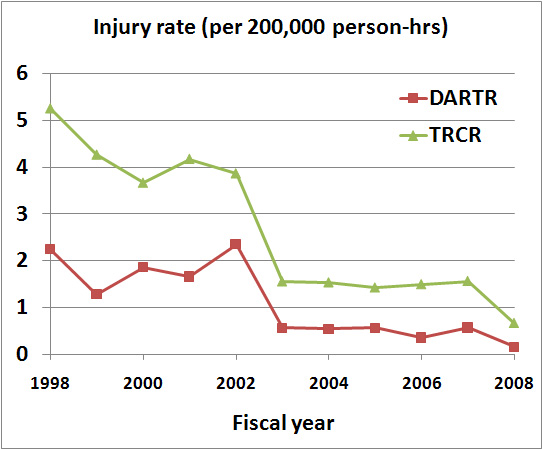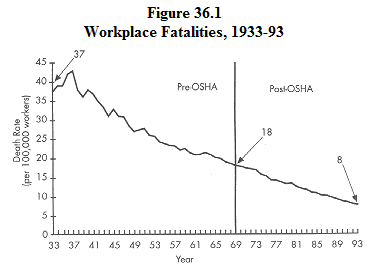RiverJordan
Inactive
I haven't seen that happening where I live (in the US). I know it happens in other parts of the world though.
Follow along with the video below to see how to install our site as a web app on your home screen.
Note: This feature may not be available in some browsers.
I haven't seen that happening where I live (in the US). I know it happens in other parts of the world though.
Can you give some examples of the US government undermining religious freedoms?
But businesses aren't religious institutions. Businesses are businesses and as such, have to abide by the laws that apply to all businesses. And as far as taxes being used for things you don't like, I don't see that as a religious issue either. Some of everyone's tax dollars goes to stuff they disagree with. That's not a religious issue, that's a consequence of living in a large society.
I guess if those are the main examples of "the state undermining religious freedom" in the US, we must have things pretty good!!
Lysander,
IMO, if everyone only funded via taxes that which they personally approved of, our country would be very, very different (and not for the better). As far as businesses doing "what they see fit", when that was the general policy we had businesses with signs like "Whites Only", "No Irish", etc.
I don't want to go back to those days.
I agree that we don't have absolute, total freedom of religion. Religious aren't allowed to engage in human sacrifice for example, even if they really, truly believe in it.Either we have a freedom of religion or we don't. If taxation toward certain programs that compromise some people's religions are being enforced, then it's simple: it means we do not have freedom of religion proper.
You mean laissez faire capitalism?But also disagree with you regarding the economics of less taxation and the operation of the country. Call me an anarchist, but I think voluntary trade, sound money, and peace is a far better means than artificial propping, fiat money, theft vi taxation, force, and war.
But we tried that, and we had the sort of things I described. Certainly most of the people who lived in those places didn't mind, or actively supported, the bigoted business practices. I mean, if most of the people in an Alabama town like businesses being "whites only", is that ok? As the United States of America, are we ok with that sort of thing?Regarding businesses, I'd much rather let the consumer decide which businesses should exist and which should fail. I don't want to go back to segregation either. Jim Crow was big govt. and if a business picks up on racist policies, they should fail, but only at their own hand. I also believe in free markets for everyone--meaning all can participate in peaceful trade.
How so?We are all created equally, in God's image, and the State doesn't respect this notion.
Lysander,
IMO, if everyone only funded via taxes that which they personally approved of, our country would be very, very different (and not for the better). As far as businesses doing "what they see fit", when that was the general policy we had businesses with signs like "Whites Only", "No Irish", etc.
I don't want to go back to those days.
I agree that we don't have absolute, total freedom of religion. Religious aren't allowed to engage in human sacrifice for example, even if they really, truly believe in it.
All I can say about how tax dollars are spent is, that's what elections are for. If the Amish don't want their tax dollars to go towards the power grid, Christian Scientists don't want theirs going to medical research, and Quakers don't want theirs going to the military, then they can vote for candidates who will implement that agenda. If they lose, that's part of living in a democratic republic.
"Freedom" to me doesn't mean "I get everything exactly the way I want it, all the time".
You mean laissez faire capitalism?
But we tried that, and we had the sort of things I described. Certainly most of the people who lived in those places didn't mind, or actively supported, the bigoted business practices. I mean, if most of the people in an Alabama town like businesses being "whites only", is that ok? As the United States of America, are we ok with that sort of thing?
How so?
One of us supports government involvement and the other does not.
How about government involvement in covering private losses? In 2007? Again in 2008? And each and every following year?
Very interested in your answer.
Well, at least you're consistent. And I agree with much of what you say.
But you're forgetting that laissez faire brought the world here, to a global crisis, not a government economy. In fact, it's ironic that it's a government economy holding most of U.S. debt - I’m sure you know what I mean. And that economy also holds the value of the U.S. dollar - I’m again sure you know what I mean. And the value of the Euro, by the way.
Isn’t it deeply ironic that decades after the communism fell it’s a communist country holding the economic fate of the world? And no, I don’t mean that in any figurative way at all. Unfortunately.
Lysander,
From what I can tell, you espouse almost an anarchist society, where there are very few laws, regulations, protections, etc. I don't agree. I look back to the early 1900's in American history when we came about as close to what you describe as ever (in relatively recent history). That was a time of robber barons, child labor, company towns, no safety, environmental disasters, etc.
History shows that the closer we get to "anything goes and everyone is on their own", we end up with a "society" (which it is in only loose terms) of a few extreme winners and many extreme losers who are left to die in the streets.
Looking across the world, the societies that are the most functional with the highest levels of satisfaction among their citizenry are the ones that take the opposite track.
What you describe might seem like a Randian utopia to you, but in reality it's a disaster.


So you would support child labor, company towns, robber barons, extreme inequality, etc. if that's what a free society produced?
